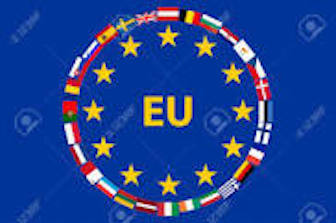InfoTech
Wardchat Launches Networking App for Nigerian Voters

Mr Kunle Lawal, Country Lead, Wardchat Nigeria, has said that as part of the build-up to the 2023 General Elections, the launch of Wardchat App will enable voters across the country to connect.
Lawal made this known in an interview with newsmen on Thursday in Lagos.
Wardchat App, a first of its kind, is a non-partisan and smart social network. According to him, the app will enable voters connect from same polling unit, ward, local government and State across Nigeria.The country lead noted that the App aims to digitise the electoral space for proximal relationships using the smallest electoral unit which is the ward as a determinant during registration. “The App will also enable users to follow and share opinions, photos, videos, news and live events he/she votes originates from.
“Wardchat App does not have any political affiliation. It is just a social media platform to drive conversations on electoral processes and political integrity around the country. “Also, the data generated through the App can help in political campaigns, electoral processes and elections,” he said.
Lawal noted that Nigeria was at the forefront of technology hence using the App to leverage on technology to solve political problems. He said: “We have reached the point of leveraging technology to propagate politics. It is being done in a dismal way on apps that were curated by Nigerians for Nigeria. This is by Nigerians for Nigeria.”
He explained that through the use of the App, Nigerians get to be part of the electoral process thereby getting reactions to the issues pertinent to their welfare. Lawal also added that through the App, realtime and genuine results will be gotten from various polling units.
Speaking on some of the features on the Wardchat App, the country lead noted that there was the News segment, Electoral and Origin Switch, Seamless Multi-Share, Feeds amongst others. He explained that a voter who votes in one state but originates from another state could easily switch feeds between the two different states in other to engage or share contents with voters from those states through the Electoral and Origin Switch feature on the App. “This is a revolution that would change the face and game of how politics is done and the way debate is being done on social media,” he said. (NAN)
InfoTech
FIFA Hides More than 10 million Hate Posts, Comments

Football’s ruling body FIFA on Thursday said that it has hidden more than 10 million abusive comments in its fight against hate speech.
FIFA said it has analysed some 33 million posts and comments on 15,302 accounts since it launched its Social Media Protection Service (SMPS) at the 2022 World Cup, and made it available to all its members and players in 2024.
It said that SMPS has been used at 23 tournaments as well as in qualifying and friendly matches.
It is also available at the current Club World Cup for the 32 teams and 2,019 accounts of players, coaches and officials.
FIFA said it is using Artificial Intelligence (AI) to filter abusive posts and hide them from the account owners.
A FIFA survey has revealed that women’s players are more subjected to abuse than the men. (dpa/NAN)
InfoTech
Cloud Security and its Role in Healthcare Cybersecurity

By Engineer Olusola Omotunde
The advent of cloud technology can be traced back to the 1960s according to https://www.cloudzero.com/blog/history-of-the-cloud/.
Cloud technology has evolved from a myth to a revolution in the global space.
In fact, it forms one of the best ways to secure data and save organizational funds.
A drift from the era of physical data centers has become the norm.
Cloud platforms like Amazon and Azure have taken over the scene even in developing climes. How much space does an organization need for its operations and what is the cost effect?Another pertinent point would be, the security of organizational data.
In this paper, we will provide a synopsis of cloud security and its role in healthcare cybersecurity.
The healthcare industry is one of the most critical aspects of any nation. How safe are patient’s data? What are the mitigating factors? How regularly does the IT team carry out an assessment of the security in place? In all of these, cloud security comes into play.
Cloud security is critical in healthcare cybersecurity because it provides the tools, processes, and policies required to protect sensitive patient data and assure regulatory compliance in an increasingly digital environment. Healthcare organizations that use cloud services for electronic health records (EHRs), telemedicine, patient portals, and other services face specific cybersecurity challenges, such as protecting huge amounts of personally identifiable information (PII) and protected health information (PHI).
Below are some aspects where cloud security contributes or plays pivotal roles in healthcare cybersecurity:
1. Data Protection
• Data Backup and Recovery: Cloud solutions provide backup and disaster recovery capabilities, which assist healthcare organizations in protecting data from loss due to cyberattacks or system failures.
• Encryption: Cloud providers provide sophisticated encryption options for data at rest and in transit. This is critical for healthcare providers to safeguard sensitive patient information from unauthorized access.
2. Prevention and Detection of Threat
• Real-time Monitoring and Alerts: Cloud security solutions can provide 24-hour monitoring and notifications if suspicious behaviour is discovered. This quick response capability is crucial for healthcare organizations to avoid or mitigate the effects of cyber events.
• Advanced Threat Protection: Cloud providers provide services that include threat detection features like intrusion detection, malware scanning, and vulnerability assessments. These services assist healthcare organizations in identifying and addressing hazards before they cause harm.
• Automated Patch Management: Cloud providers frequently handle patch management for their infrastructure, ensuring that systems are up to date against the most recent vulnerabilities, which can dramatically minimize the risk of attack.
3. Flexibility and Scalability
• Scalable Security: As healthcare organizations expand, cloud security can scale with them, allowing for the installation of additional security measures without requiring major infrastructure upgrades.
• Adaptable Infrastructure: Healthcare organizations can quickly respond to emerging threats with cloud-based solutions that include updated security tools and services. This adaptability is critical in a dynamic threat context.
4. Cost Efficiency
• Pay-as-you-go Model: Many cloud services use a pay-as-you-go model, which allows healthcare providers to only pay for the security services they use. This can help organizations manage costs while still providing high-quality security tools.
• Reduced IT Costs: Cloud providers manage and maintain the infrastructure, eliminating the need for healthcare companies to invest heavily in on-premises security hardware and personnel.
5. Regulatory Compliance
• HIPAA and GDPR Compliance: Cloud providers that service healthcare organizations frequently offer solutions designed to comply with industry-specific standards such as the Health Insurance Portability and Accountability Act (HIPAA) in the United States and the General Data Protection Regulation (GDPR) in Europe.
• Audit Support: Many cloud services provide logging and monitoring capabilities to assist healthcare organizations in tracking and auditing data access and usage, which is critical for regulatory compliance.
Key Considerations for Healthcare Providers across the globe
When healthcare providers deploy cloud solutions, they must address a number of security concerns to safeguard sensitive patient data, ensure regulatory compliance, and manage possible risks. It is also important that they scrutinize the security certificates held by cloud providers, ensure that they clarify ownership rights to their data with their cloud providers, training staff on the security best practices which include training on data handling, phishing awareness and secure access protocol.
There is no one-size fits all rule other than being careful!
Engineer Olusola Omotunde is an IT expert and writes from Lagos, Nigeria
InfoTech
The World Today, Data Ethics and Privacy

By Emmanuel Oye-Adeniran
Data is becoming a vital resource in the digital age, propelling innovation and decision-making in many sectors of the economy such as Construction, Healthcare, Agriculture and Finance. However, data ethics and privacy worries have increased along with data gathering, storage, and analysis growth.
Discussions concerning the ethical use of data and the defence of individual rights in a society that is becoming more interconnected revolve around these issues. This article looks at the importance of data privacy and ethics as it affects today’s world.Many years ago, before the advent of digitalization, it was of no consequence to share an individual’s information with or without consent which made it quite interesting as there were no laws safeguarding individual’s data, in fact, people did not bother much.
However, in the new era of digitalization, a person’s data must be treated as private.
They have entrusted you with their bank details, contact addresses, etc and they must be kept private.
Cybercrime has become so prevalent globally that many have argued it has come to stay. Well, this might not be untrue considering how long it has become an issue on the front burner.
A synopsis of data privacy between the 16 and 19th centuries reveals that privacy was mostly a problem with physical areas and communications. The necessity of maintaining communication secrecy was brought to light by the development of the postal system in the seventeenth century (Ref: Mark Elliot, Anna M. Mandalari, Miranda Mourby, Kieron O’Hara).
In today’s age of online shopping, social media interactions and AI technology, it has become evident that various platforms usually collect people’s data for various purposes, ranging from marketing intelligence to improved user experience.
A look at some of the elements which are related to Data privacy and ethics in today’s world:
(i)Transparency and Accountability:
Stakeholders are holding digital businesses more and more responsible for their ethical behaviour and data policies. Gaining the trust of users requires being open and honest about the goals, techniques, and possible risks associated with data collecting. Businesses should make their policies on the gathering, handling, and distribution of personal data easily understandable.
User permission and data control procedures should also be simple to understand and intuitive. Accountability techniques, such recurring audits and impartial supervision, can guarantee that businesses follow legal and ethical criteria.
(ii) Bias and Fairness:
The computer is obviously not intelligent without human input, and so it must be fed with the right unbiased information. If the Algorithm is discriminatory towards a social class for instance, then this nullifies the essence of Data ethics.
Algorithmic bias poses a significant ethical challenge in technology use. Machine learning algorithms, while powerful, can perpetuate and amplify biases present in training data. This can result in discriminatory outcomes, reinforcing existing social inequalities.
Ethical technology use requires ongoing efforts to identify and mitigate bias in algorithms. Companies must prioritize fairness and equity in designing and implementing AI systems, ensuring that technology serves diverse populations without perpetuating discrimination.
(iii)Consent and its role:
The use of ambiguous policies often makes it almost impossible for users to make very safe and informed choices about the implications of sharing their data and so it is imperative that policies be made simpler for users to understand. This would by a long shot, provide a proper decision-making process.
(iv)Empowering users:
Enabling consumers to take control of their data is essential to using technology ethically. It is critical to give people easily available tools for controlling privacy settings, comprehending data usage, and making defensible judgments about disclosing personal information. Initiatives aimed at raising user knowledge and education can support people in advocating for their right to privacy and navigating the digital world. By enabling people to take charge of their digital identities, businesses can cultivate a climate that values data security and online privacy. People must be given more rights to their data.
Conclusion
In today’s ever-evolving world of digitalization, it is imperative that stakeholders especially corporations adhere to the rules of data ethics and privacy.
Every clime must ensure that their users are protected by establishing laws and reviewing such existing laws to protect their users. Some of the data protection and ethics laws like the Pan-African initiatives of 2014, the Nigeria Data Protection Regulation (NDPR) issued in 2019 and the European GDPR which came into effect on the 25th of May, 2018 are some of the efforts by various governments across the globe to stem the abuse of peoples’ rights to their Data. The laws are quite clear and focus on some salient points such as, Increased accountability & transparency, Empowerment of individuals, Standardization across the EU and Encouragement of best practices. These laws must be adhered to.
Big world corporations must put the customer’s rights at the front burner.






























